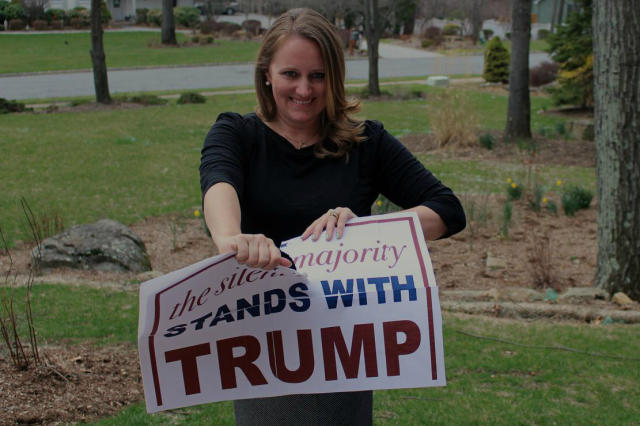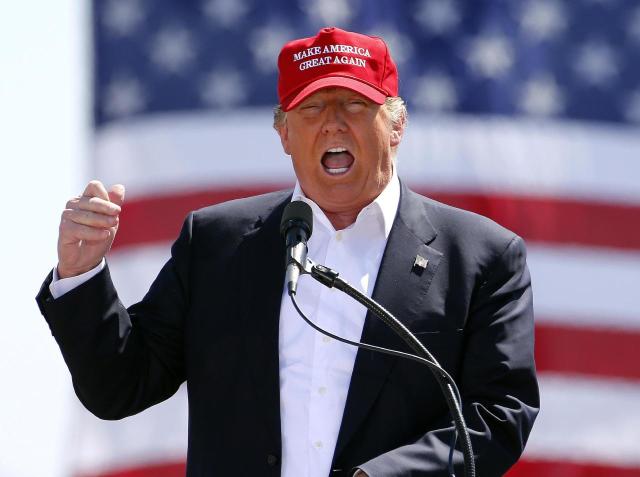
President Muhammadu Buhari
Charter airlines operating in
Nigeria have been losing at least half a billion naira monthly since
President Muhammadu Buhari came to power and started his anti-corruption
crusade, findings by Saturday PUNCH have shown.
In the last four months, investigation reveal that 10 charter airlines have lost a combined revenue of $10.395m (N2.048bn).
Subsequently, some of the charter
airlines, which used to enjoy the robust patronage of serving and
non-serving top government officials, cronies and contractors, are now
at the verge of closing shops following a sharp drop in business
turnovers.
Sources in the charter airline
sub-sector of the country’s aviation industry disclosed to our
correspondent under the condition of anonymity that Buhari’s
anti-corruption campaign had made most of their clients to boycott
flying charter jets.
It was further learnt that serving
governors, politicians, immediate past ministers, ex-presidential
advisers, top government contractors including subsidy scheme
beneficiaries and top civil servants, who used to charter airlines, had
all stopped flying private jets.
Findings also revealed that associates
of these serving and non-serving government officials, and their
associates and family members, both close and distant, had also stopped
renting private jets, a usual practice in the past.
A director in one of the aviation
agencies who is close to charter jet operators at the Lagos airport,
said, “Immediately Buhari took over, charter jet business started
witnessing a gradual decline. But it became very worse when Buhari
started the anti-corruption crusade.
“The fear of probe by the new government
made most of our clients to run away. You know most of our clients are
serving and non-serving top government officials, top government
contractors and subsidy scheme beneficiaries.”
The CEO of one of the top local charter companies, who spoke under the condition of anonymity, also confirmed the development.
He said most operators were already
returning some of the planes they leased from foreign leasing companies
following the development.
He said, “The charter businesses have
all been affected so badly, I used to do an average of 50 hours in a
month. And this is the average for most of us the main operators. Now, I
hardly do 10 hours in a month, it’s that bad.”
“I do about 60 hours per month at my
peak, and about 43 hours per month at periods before the emergence of
the new administration,” he added.
According to him, the condition has made
some operators to return planes leased from foreign leasing companies
in South Africa and United States back to them.
“Many of us (charter airlines) could not
afford lease rentals (fees operators pay on planes to their owners)
anymore because businesses are down, I mean virtually down completely.
“The law allows us to lease aircraft
that because Nigeria has domesticated the Cape Town Convention. That was
even the reason they released the planes to Nigerian operators in the
first place.”
Following the downturn in business, he
said each operator had returned between one and four aircraft to their
owners overseas depending on the number of planes they leased from them.
Findings by our correspondent show that there are about 10 licensed charter airlines operators in Nigeria.
These are Austria-based Vistajets,
United Kingdom-based Hanger 8 Aviation, Top Brass Aviation, Skyjet
Airlines, Jed Air, Overland Airways, SkyPower Express, Arik Air, King
Air and Associated Airlines.
However, there are still a number of
charter flights operated by some helicopter companies which also have
one or two private jets for charter in their fleet.
Also, there are still a number of companies which do charter under the licences of some of the licensed charter operators.
Further findings from government
agencies and chief executive officers of some charter airlines showed
that each of the main operators made an average of 50 hours per month
before Buhari took over and began the anti-corruption crusade.
Specifically, charter airline operations
ranged from 35 to 65 hours per month before the advent of the Buhari
administration. This may come from an average of about three or four
flights per week with each flight lasting for about two to three hours
on the average.
According to the CEOs, the charter airlines charge between $5,000 and $8,000 per hour for the flights or services.
However, businesses have become so bad
that most operators do between five hours and 20 hours a month,
according to some CEOs who spoke to our correspondent under the
condition of anonymity.
Using an average fee of $6,500 per hour
and an average of 50 hours per month for each operator, It means that
the 10 licensed charter airlines were generating a revenue of $3.25m
(N640.25m) every month before the emergence of Buhari.
However, with the downturn in business,
it means using an average of 10 hours per month for each operator, the
10 licensed operators are now making approximately $650,000 (N128.05m)
every month.
This means that the charter airlines are
losing about $2.6m (N512m) in revenue every month with the sharp
decline in their business.
This means that between May and September, charter airlines have lost about $10.4m (N2.048bn) in revenue.
The development has made some charter airlines to begin sacking some of their employees.
It was authoritatively gathered that
Vistajets had sacked some of its employees in the aftermath of the sharp
drop in its business.
Early last year, it was reported that
the immediate past Minister of Petroleum, Mrs. Alison Madueke, allegedly
flew Vistajets for several months and accumulated huge sums of bills
that could almost reach half of the amount a private jet is sold.
Vistajets, which parades some of the
best upscale and almost brand new Bombardier jets in its fleets, enjoys
perhaps the best patronage prior to the downturn in the charter business
market.
The Austria-based charter airlines,
which used to have about five private jets deployed in Nigeria during
the peak of business, had reduced it to just two with only one being in
active service, according to a government official close to the company.
The official said a number of workers
were laid off after the company redeployed some of its aircraft to other
African countries.
The Vistajets’ representative in
Nigeria, Mr. Kola Aluko, could not be reached for comments. Calls and
text messages sent to his telephone line did not go through.
The CEO of Skypower Express, one of the
charter airlines, Capt. Joji Muhammed, said the downturn in the charter
business market could be linked to several factors including the
downturn in the economy and the fact that elections were over.
Joji, who confirmed that some operators
had returned their aircraft overseas, said when planes were no more in
use due to low business, it was normal that they would be taken away.
An aviation industry analyst and Chief
Executive Officer, Group Captain John Ojikutu (retd), said Buhari needed
to investigate those who had used government funds and corrupt money to
fly or buy private jets.
He said it was obvious that most of the people who used to fly private jets got the money through corrupt means.
“All the government contractors,
ex-government officials must all be investigated; they have stopped
because a new government that is interested in seeing how people spend
money is in power.”
Industry watcher and CEO, Finum
Aviation, an aviation consultancy firm, Mr. Sheri Kyari, said, “People
who used to display wealth are no more doing so because they don’t know
what will happen next. This is why the charter business market is down.
Except there is an economic boom, the charter market may not recover too
soon.”
Saturday PUNCH also learnt that
some top government officials and beneficiaries of oil subsidy scheme
who bought private jets were selling them for fear of being probed.
Some who did not sell them were said to
be hiding them in foreign countries. It was gathered that those who
leased private jets directly from foreign companies for their private
flying had returned them.
An aviation industry analyst and member
of the Aviation Round Table, an industry pressure group, Mr. Olumide
Ohunayo, said the growth and boom the charter airline sub-sector
experienced before the emergence of Buhari was funded by stolen and
excess government funds.
He said, “Things have not been done
properly in the charter airline sector. For instance, a lot of the
operators are not paying taxes. We have some people also offering
illegal charter services. You saw how the NCAA recently impounded two
foreign planes for doing illegal charter services in Nigeria. Now, a new
sheriff is in town and the fear of the new sheriff has slowed down
activities in that sector.
“We have come to the time when everybody
has to account for their actions and inactions. Before now, you see
ministers and top government officials flying private jets and forcing
government agencies to foot the bill. That is no longer happening now
because all the top civil servants are afraid of Buhari’s probe.”
Ohunayo further explained that. “We used
to see a situation where some top government people, their family
members or cronies will charter private jet to Dubai or South Africa on a
Friday to relax and come back on a Monday. That can no longer happen
again so the sector must experience the lull. People must account for
things and the fear of probe is making many people to run away now even
though they still have the money.”
Industry watcher and former Assistant
General Secretary, Airlines Operators of Nigeria, Alhaji Tukur Muhammed,
said many top Nigerians with links in government who used to fly
private jets now fly business class in commercial planes. He noted that
the development had made commercial airlines to be making good revenue
in their premium classes.
Muhammed said, “People are being forced
to change their lifestyles. Come and see the business class cabin of
First Nation, Aero contractor and other airlines on the Lagos-Abuja
route now, you see the big names that used to fly charter jets there.
The fear of Buhari has made everyone to change their lifestyles. I think
it is good for the country. However, people who stole money must
account for it.
“For the charter airline market, we will
start facing the reality now. Private jet is not for everyone. It is
for those few who can afford it, and not those who stole government
money.”






